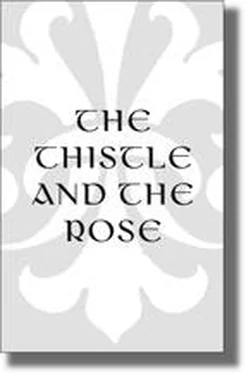Jean Plaidy - To Hold the Crown - The Story of King Henry VII and Elizabeth of York
Здесь есть возможность читать онлайн «Jean Plaidy - To Hold the Crown - The Story of King Henry VII and Elizabeth of York» весь текст электронной книги совершенно бесплатно (целиком полную версию без сокращений). В некоторых случаях можно слушать аудио, скачать через торрент в формате fb2 и присутствует краткое содержание. Жанр: Старинная литература, на русском языке. Описание произведения, (предисловие) а так же отзывы посетителей доступны на портале библиотеки ЛибКат.
- Название:To Hold the Crown: The Story of King Henry VII and Elizabeth of York
- Автор:
- Жанр:
- Год:неизвестен
- ISBN:нет данных
- Рейтинг книги:5 / 5. Голосов: 1
-
Избранное:Добавить в избранное
- Отзывы:
-
Ваша оценка:
- 100
- 1
- 2
- 3
- 4
- 5
To Hold the Crown: The Story of King Henry VII and Elizabeth of York: краткое содержание, описание и аннотация
Предлагаем к чтению аннотацию, описание, краткое содержание или предисловие (зависит от того, что написал сам автор книги «To Hold the Crown: The Story of King Henry VII and Elizabeth of York»). Если вы не нашли необходимую информацию о книге — напишите в комментариях, мы постараемся отыскать её.
To Hold the Crown: The Story of King Henry VII and Elizabeth of York — читать онлайн бесплатно полную книгу (весь текст) целиком
Ниже представлен текст книги, разбитый по страницам. Система сохранения места последней прочитанной страницы, позволяет с удобством читать онлайн бесплатно книгу «To Hold the Crown: The Story of King Henry VII and Elizabeth of York», без необходимости каждый раз заново искать на чём Вы остановились. Поставьте закладку, и сможете в любой момент перейти на страницу, на которой закончили чтение.
Интервал:
Закладка:
“He is sending them a proposition. He is asking for your hand. . . .”
“For Prince Henry, I know. That has been decided.”
“No . . . for himself.”
Katharine stared at him. She could not have heard correctly.
“The King . . .”
“’Tis so. The King would make you his queen . . . without delay.”
“I can’t believe this. The Queen has not been dead two months.”
“The King is in a hurry.” He came closer to her. “He is obsessed by the need to get heirs. Elizabeth gave him several but too many died. He wants you who are young and strong to take the place of the Queen in his bed.”
De Puebla was smiling in a way which nauseated her. Horrible pictures sprang into her mind . . . images of something she did not understand and which made her uneasy, more than that—terrified her.
“No,” she said. “No. I shall never agree.”
“I have been ordered by the King to write to your parents.”
“Oh no, no,” she cried. “Not that . . . anything but that . . .”
“I believe Queen Isabella has decided you shall have Prince Henry. My Princess, when I hear from her I shall come straight to you. I thought it best to warn you . . . that you may be prepared.”
She stood staring straight before her and de Puebla, bowing low, asked leave to retire.
Poor girl! If the Sovereigns decided it would be expedient for her to take old Henry she would have to. And he fancied Ferdinand would rather like the idea of seeing his daughter Queen of England now . . . even though he would have to pay the second half of the dowry.
When she was alone Katharine went to her apartments and shut herself in. Doña Elvira tried to discover what ailed her but she would tell no one. She wanted to be alone with her horror.
Fervently she prayed, calling on God to save her, calling on her mother to come to her aid.

The days began to pass slowly.
Whenever she was in the company of the King, which she thanked God was rarely, she saw his eyes on her. They were not lascivious, speculative rather, as though he were assessing how fit she was to bear children. She compared him with Arthur and weeping afresh for her young husband, she longed above everything else for home, to be able to tell her mother of her fears, to see those dear kind eyes filled with understanding. If she could but see her mother, explain to her, she was sure that no matter how advantageous this marriage would be to Spain, Isabella would never allow it to take place.
What if she wrote to her mother? But de Puebla had told her in confidence. Her father might see the letter. Henry might learn that she begged not to be married to him. She could visualize all sorts of dire results; and she decided that nothing could be done but hope and pray.
Henry himself was restive. He was not well and the arrogance of his young son irritated him now and then. He should of course be grateful for having such a son who was so suited to being a king; but sometimes the boy behaved as though he were already one and he wondered whether young Henry was looking forward with a little too much zeal to the day when he would ascend the throne. Sometimes those rather small but intensely alert blue eyes would be caught studying his father as though, thought the King, he were summing up my ability to cling to life, and assessing how many more years were left to him.
The prospect of a crown was too glittering for a young boy of Henry’s temperament to reconcile himself to waiting patiently until it could be justly put upon his head.
The King gave a great deal of thought to his son and the Prince of Wales was not the least of his anxieties. The boy had to be kept on a firm rein and the King fervently prayed that more years might be granted him so that he did not leave the country in the hands of this exuberant boy until he had attained some maturity.
The King had dismissed John Skelton from the Prince’s household for he had come to believe that the poet tutor had a bad inflcuence on the Prince. In a way the King admired Skelton. He was a poet of some ability and above all he was a fearless man. He had shown that in his verses about the Court, which he had portrayed quite derisively. But Henry believed he was too worldly to be the daily companion of a young impressionable boy, and fancied he had probably already initiated the Prince into the enjoyment of pleasure between the sexes and that, unlike in his own case, these pleasures would be very much to young Henry’s taste.
Well, Skelton had gone; Henry did not want to be unjust to any man. He had no desire to be harsh and rarely acted so except when common sense demanded it. So although Skelton had lost his post as tutor to the Prince of Wales he was given the living of Diss in Norfolk and in addition to this Henry gave him forty shillings a year in recognition of his service in the royal household. Therefore Skelton had done rather well for himself for the pension added to his stipend put him in a position to be envied by other less fortunate priests.
Skelton had settled down to write more scandalous poems and young Henry had a new tutor, William Hone. The Prince had greeted the change with a certain resentment. If he had been a little older and more sure of himself there would have been open rebellion, the King believed; and it was one of the factors which added to his uneasiness.
Hone was a meek man. Perhaps the difference from Skelton was too marked, and young Henry became quickly reconciled because he found William Hone very easy to handle.
The fact was young Henry was finding people generally easy to handle—largely, the King suspected, because those around him had their eyes on the future. They would be thinking: How much longer is the old lion going to last? Then it will be the young cub’s turn. Therefore wise far-seeing young men that they were, they made sure to keep in the prospective King’s good graces.
It was an uneasy situation and one entirely distasteful to the King but he was too much of a realist not to see that it could not be otherwise.
He would have to content himself with keeping an eye on his son and when he thought a man was too dangerous—as in the case of Skelton—discreetly getting rid of him.
He often considered the young men who were the Prince’s particular friends. There was Charles Brandon . . . something of a rake and five years Henry’s senior, which was a matter for some concern. Brandon was making Henry grow up too quickly. He was turning the young Prince into a sophisticate . . . and he not twelve years old yet! There was a world of difference between twelve and seventeen but Brandon had been brought to Court because of the gratitude Henry owed his father. The King liked to reward those who had been with him at Bosworth Field where Brandon’s father had been his standard bearer and had died standing steadfastly with Henry. So Charles Brandon was there . . . at Court . . . young Henry’s companion and confidant. But he must be watched . . . in spite of his father’s loyal service on that decisive field of battle.
Then there was young Edward Neville—tall as Henry with the same fair skin and reddish hair, a fine boy, but of course belonging to one of those families who had made a great deal of trouble in the land. One who was descended from Warwick the Kingmaker would have to be watched.
Henry Courtenay was another boy. He was younger than Henry and was at Court because his mother was there, sister to the late Queen; but his father was now in the Tower on account of complicity with Suffolk, which had resulted in the execution of Sir James Tyrrell. The late Queen had said that it was her duty to look after her Courtenay nephews and nieces. And Henry could not very well turn them away in view of their relationship to the Queen. Moreover, children should not be blamed for the sins of their fathers.
Читать дальшеИнтервал:
Закладка:
Похожие книги на «To Hold the Crown: The Story of King Henry VII and Elizabeth of York»
Представляем Вашему вниманию похожие книги на «To Hold the Crown: The Story of King Henry VII and Elizabeth of York» списком для выбора. Мы отобрали схожую по названию и смыслу литературу в надежде предоставить читателям больше вариантов отыскать новые, интересные, ещё непрочитанные произведения.
Обсуждение, отзывы о книге «To Hold the Crown: The Story of King Henry VII and Elizabeth of York» и просто собственные мнения читателей. Оставьте ваши комментарии, напишите, что Вы думаете о произведении, его смысле или главных героях. Укажите что конкретно понравилось, а что нет, и почему Вы так считаете.












